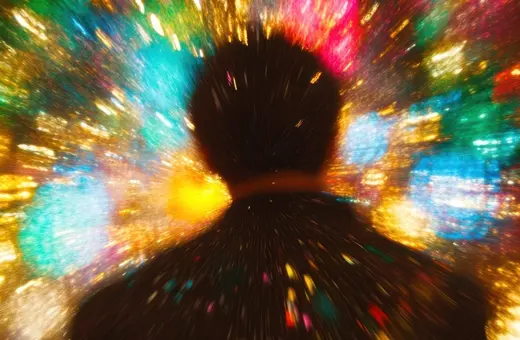If you think about it, the idea of free will doesn’t make sense if there is no self, as cutting edge-research neuroscience research suggests. But Chris Niebauer argues that, counterintuitively, we become free once we realise there is no self.
You probably started to read this article with the belief that it was something you decided to read and that you will decide when to quit reading or read till the end. It comes down to the idea that there is a “you” or a “self” similar to an inner CEO running the show and calling the shots. Most importantly, there is the assumption that this CEO possesses what philosophers (and now neuroscientists) call free will. The question of free will continues as a central question of what it means to be human because free will asks explicitly…Who is it that has free will?
For most ordinary people, it is assumed that “we” exist somewhere within the skull, and this self is free to make decisions. This self is the “captain” of the body, controlling our behaviors and making our life choices. The problem is that neither this inner self nor free will exists the way most think that it does. Research conclusively demonstrates that these are just stories that we humans make up. Michael Gazzaniga’s groundbreaking research eventually concludes that the self is just a fiction created by the brain. Humans make up such stories, believe in them, and rarely question their validity. However, this isn’t the bad news it may appear to be. It is good news, but it will take a while to grasp.
___
The greatest modern confusion regarding the human mind is to confuse thinking with consciousness.
___
One of the most popular questions students asked me was the nature of my position on free will. Students would always have the strangest look when I would subsequently ask them, “Do you mean what I think of free will or an answer beyond thinking?” The greatest modern confusion regarding the human mind is to confuse thinking with consciousness, so it is important to make this distinction. Let’s first consider the thinking mind. In Western culture, human existence is defined by thinking. With Descartes’s famous statement, “I think therefore I am,” our existence became dependent on thought. Most thinking consists of a running inner narrative consistently trying to explain what’s happening or creating a theory to predict the future. Thinking is the inner voice you hear while trying to sleep as it speculates how the email you sent to your boss will likely get you into trouble the next day. While many may know that the left brain specializes in language, it is also responsible for this inner voice. It is this inner voice that creates all the stories we call thinking. Most of us overthink to the point that thoughts get in the way of a peaceful life, as many suffer from intrusive and unwanted thoughts. Let’s first consider what neuroscience has discovered about the story-telling, over-thinking left brain.
 SUGGESTED READING
Why There Is No Self: A Buddhist View for the West
By Jay Garfield
SUGGESTED READING
Why There Is No Self: A Buddhist View for the West
By Jay Garfield





















Join the conversation